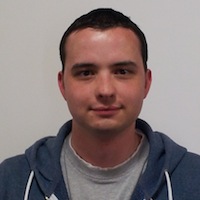Title: Argument Revision and its Role in Dialogue
Supervisor: Prof. Chris Reed
Examiners: Prof. Guillermo Simari, UNS, Argentina & Dr. Keith Edwards, University of Dundee
Abstract:
In this thesis, a model for argument revision is presented, in terms of the expansion and contraction of a system of structured argumentation. At its core, the model uses the belief revision concept of minimal change, but without requiring a pre-determined entrenchment ordering to establish minimality.
In the first part of the thesis, a model for argument revision is defined and described. Specified in terms of the ASPIC+ framework for argumentation, the model is divided into two main concepts: argument expansion, whose goal is to make certain arguments acceptable in the system, possibly by adding them; and argument contraction, whose goal is to make certain arguments unacceptable in the system, possibly by removing them. The goal of a revision process can be achieved in multiple different ways, thus a method of choosing which, based on measures of minimal change, is also specified. The second part of the thesis demonstrates two applications of the model in the context of multi-agent dialogue. The first is used to assist a participant when faced with a need to update its commitment store during persuasion dialogue, while the second shows how a participant can use argument revision techniques to both assess and maintain a lie.The main contributions of the thesis are twofold. First, the characterisation of a model for argument revision, based on established belief revision principles but with a key difference. The model for argument revision demonstrates how it is possible to use measurable effects on the system when determining minimal change instead of relying on a pre-determined, qualitative entrenchment ordering.Second, the thesis demonstrates two applications of argument revision in dialogue. The first is in assisting an agent in retracting a commitment that has been defeated, and for which it can offer no defence. When retracting a claim, the participant may also be required to retract other claims from which the defeated one is a consequence. Applying argument revision techniques allow the participant to reason about what constitutes a minimal set of retractions, in terms of current commitments and potential future communications in the dialogue.The second dialogical application relates to the opposite of retraction; instead of choosing to retract an undefended claim, the participant could instead choose to lie in order to defend it. Argument revision allows the participant to not only assess whether or not lying is “minimal” (compared to retracting), but to also to maintain the lie, by using the measures of minimal change.
Overall, the thesis shows that not only is justifiable argument revision possible without relying on a pre-determined entrenchment ordering, it is also a powerful tool for participants in a dialogue, assisting with dialogue move selection.
PDF: Available from Discovery Research Portal






 m.snaith [at] rgu.ac.uk
m.snaith [at] rgu.ac.uk marksnaith
marksnaith
